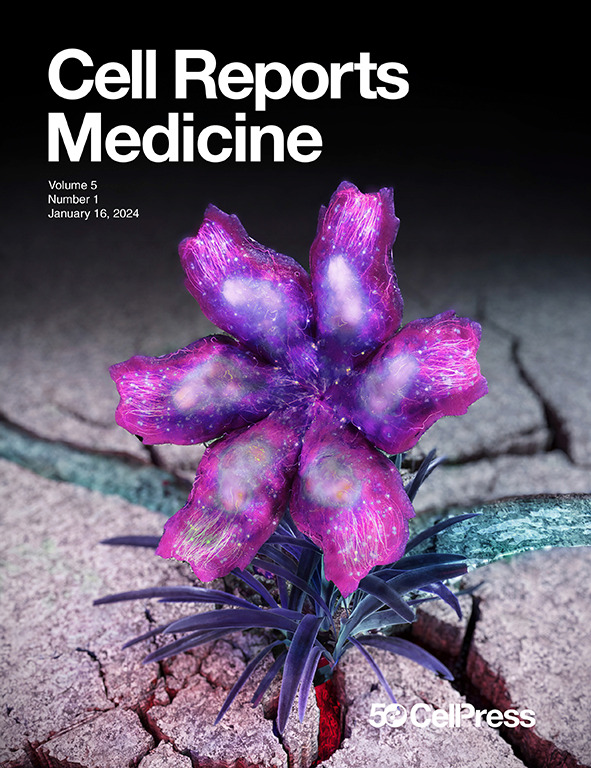改变高胆固醇血症的管理:聚焦 PCSK9 肽疫苗
IF 11.7
1区 医学
Q1 CELL BIOLOGY
引用次数: 0
摘要
Proprotein convertase subtilisin/kexin type 9 (PCSK9) 是血脂异常和动脉粥样硬化性心血管疾病 (ASCVD) 的治疗靶点。最近,Fang 等人1 和 Zhang 等人2 分别在《Cell Reports Medicine》和《Cell Reports》上发表的两项研究表明,多肽疫苗能有效激发针对 PCSK9 的抗体反应并降低血浆胆固醇水平。本文章由计算机程序翻译,如有差异,请以英文原文为准。
Transforming hypercholesterolemia management: Spotlight on PCSK9 peptide vaccines
Proprotein convertase subtilisin/kexin type 9 (PCSK9) is a therapeutic target for dyslipidemia and atherosclerotic cardiovascular disease (ASCVD). Two recent studies published by Fang et al.1 and Zhang et al.2 in Cell Reports Medicine and Cell Reports, respectively, show the efficacy of peptide vaccines in eliciting an antibody response against PCSK9 and reducing plasma cholesterol levels.
求助全文
通过发布文献求助,成功后即可免费获取论文全文。
去求助
来源期刊

Cell Reports Medicine
Biochemistry, Genetics and Molecular Biology-Biochemistry, Genetics and Molecular Biology (all)
CiteScore
15.00
自引率
1.40%
发文量
231
审稿时长
40 days
期刊介绍:
Cell Reports Medicine is an esteemed open-access journal by Cell Press that publishes groundbreaking research in translational and clinical biomedical sciences, influencing human health and medicine.
Our journal ensures wide visibility and accessibility, reaching scientists and clinicians across various medical disciplines. We publish original research that spans from intriguing human biology concepts to all aspects of clinical work. We encourage submissions that introduce innovative ideas, forging new paths in clinical research and practice. We also welcome studies that provide vital information, enhancing our understanding of current standards of care in diagnosis, treatment, and prognosis. This encompasses translational studies, clinical trials (including long-term follow-ups), genomics, biomarker discovery, and technological advancements that contribute to diagnostics, treatment, and healthcare. Additionally, studies based on vertebrate model organisms are within the scope of the journal, as long as they directly relate to human health and disease.
 求助内容:
求助内容: 应助结果提醒方式:
应助结果提醒方式:


